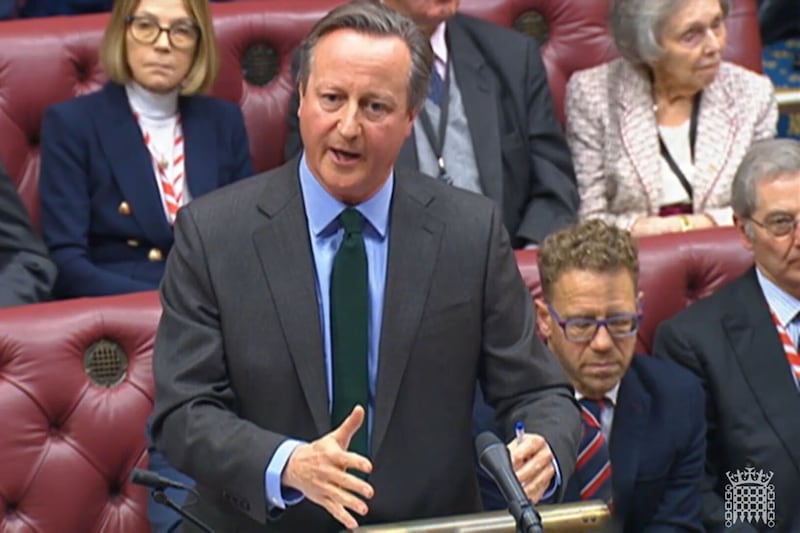BY the day it looks increasingly apparent that there is an agreed direction of travel for resolving the difficulties around the protocol.
The glacial pace that characterised the mostly technical discussions late last year has been replaced by an almost frantic level of diplomatic activity not witnessed for decades.
Gone is the duplicity of Boris Johnson and fatuousness of Liz Truss. Rishi Sunak doesn’t quite fit the bill as the knight in shining armour but in contrast to his two predecessors, his government’s approach at least appears consistent and genuine.
This week saw two significant complementary developments – the announcement of data-sharing with the EU on goods arriving a the north’s ports from Britain, coupled with legislation that will enable the completion of border control posts (BCPs) for protocol-related checks. There’s potentially more to come on Monday when European Commission vice-president Maros Sefcovic meets British Foreign Secretary James Cleverly and Secretary of State Chris Heaton-Harris.
The British government is spinning the BCPs statutory instrument as being compatible with its controversial Northern Ireland Protocol Bill, which it insists, contrary to reports, has not been ‘parked’. Nevertheless, the British government says its preferred outcome is a negotiated settlement, and developments over recent weeks reflect this.
Sir Keir Starmer’s remarks at Queen’s yesterday, where he offered the Tory leader “political cover” to do a deal with the EU, appears to herald a return of the bipartisan approach at Westminster that delivered substantial progress in the run-up to and aftermath of the Good Friday Agreement. It came with a call from the Labour leader to his Tory counterpart to stand up to the eurosceptics in his party, so whether it’s heeded and acted upon is moot.
If there is a deal in the coming weeks, all eyes will turn to the DUP, which has been blocking the restoration of the power-sharing institutions over its concerns about the protocol’s constitutional impact.
You may recall that initially, under Arlene Foster’s leadership, the DUP wasn’t that exercised about the post-Brexit trading arrangements until opinion polls suggested it was haemorrhaging support to the TUV. Since then, it’s effectively let its smaller rival dictate the terms on which it will go back into government.
The so-called seven tests that Sir Jeffrey Donaldson says must be satisfied before he’ll accept any EU-UK deal provide some wriggle room but no outcome, short of scrapping the protocol altogether, will satisfy Jim Allister and other reactionary elements within loyalism.
It seems inevitable therefore, if the Stormont institutions are to return, that the DUP demonstrates leadership and faces down those who have deep misgivings, if not a fundamental opposition, to power-sharing.
If the DUP chooses not to break ranks with would-be Carsons and backwoodsmen, then we are embarking on a new, uncharted era in which the largest party in unionism is, by choice, effectively outside the political process.
A lesson nationalism could arguably learn from previous agreements is to be a little more mindful of unionist sensitivities and the unique problems the culture of lundyism has instilled.
Some argue that the problem with the previous protocol agreement was that it was too much of a victory for the EU and nationalism; an outcome that left nothing for unionists to sell to their base.
There’s no denying that the DUP helped create the circumstances that have left them in the current bind but perhaps a little less triumphalist talk about the party again being thrown under a bus would help make Sir Jeffrey and his colleagues more amenable to endorsing an agreement.








